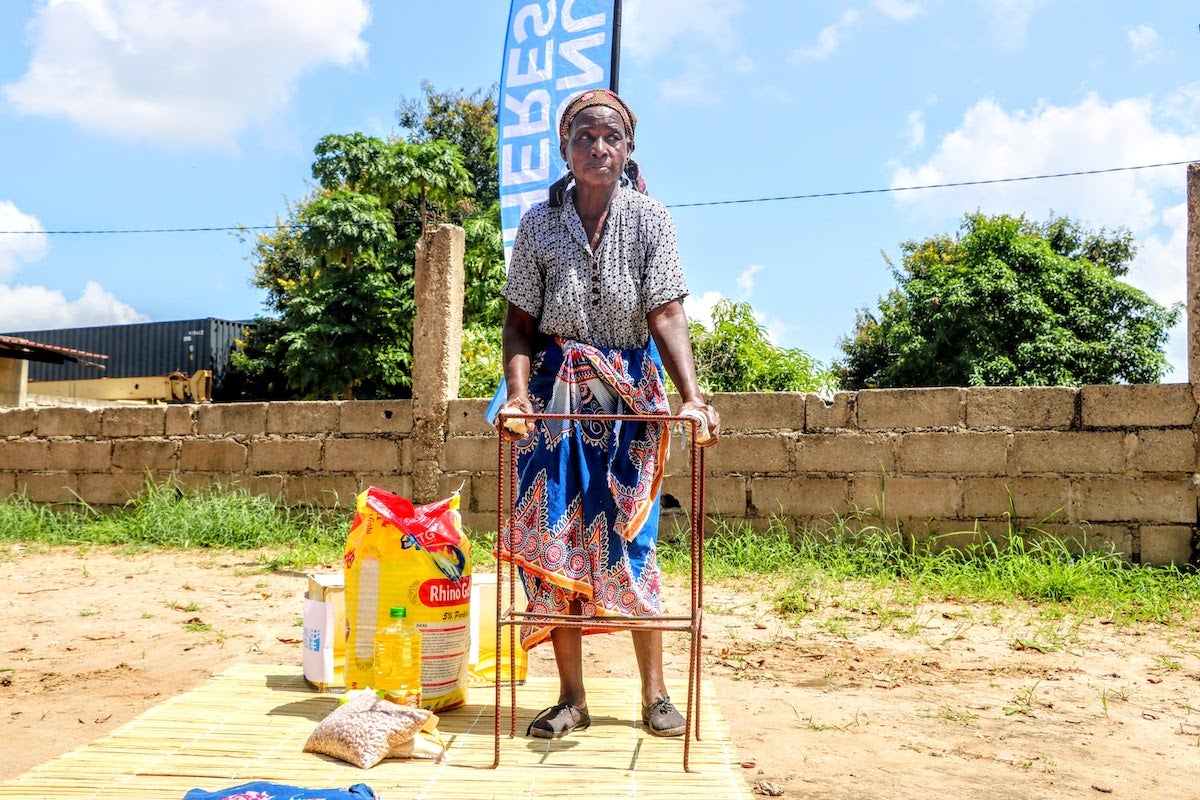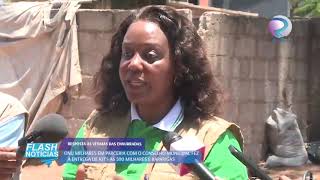UN Women strengthens preparedness capacity and resilience of women affected by recurrent floods in Maputo
Date:
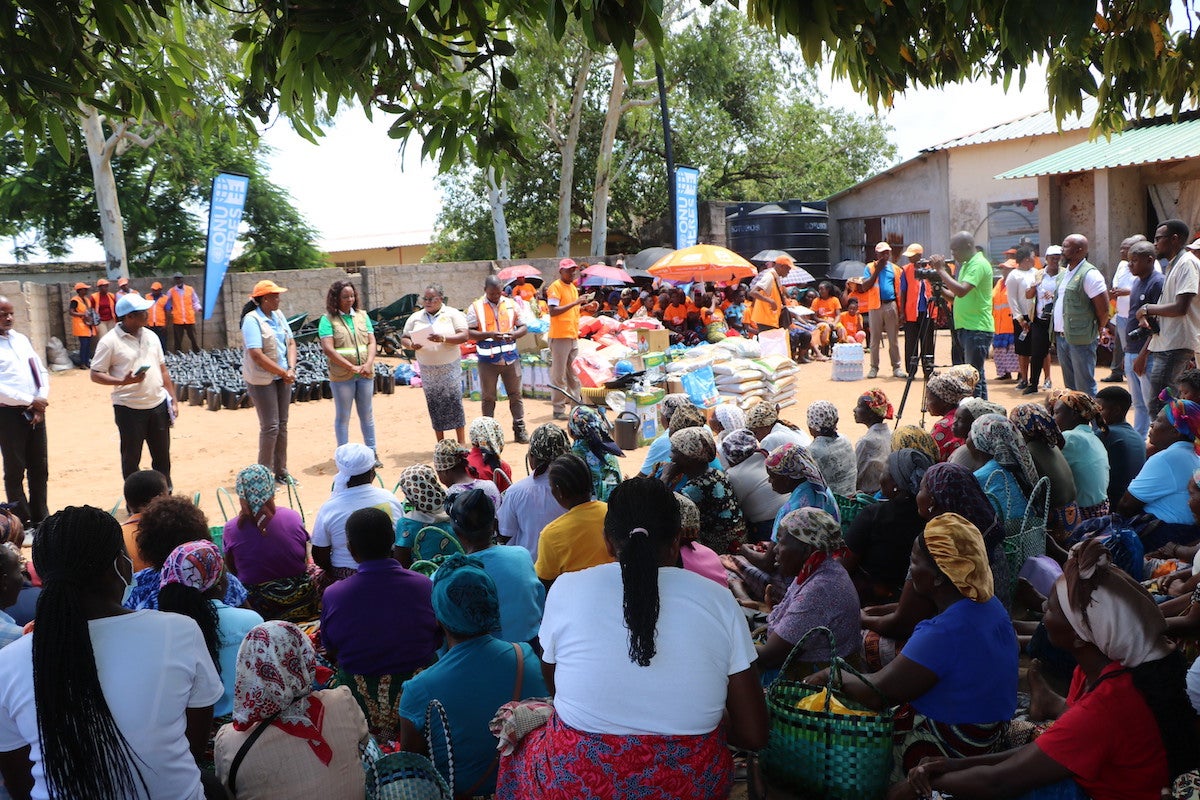
To bolster gender-responsive humanitarian interventions and preparedness measures in Mozambique, UN Women is working with Maputo City Council to tackle gender-based violence in crisis and strengthen the capacity of women and thirteen local disaster and risk management committees each composed of 8 men and 8 women.
Heavy rains hit the southern region of Mozambique in February 2023, causing widespread flooding and structural damages, particularly in Maputo city and Maputo province. According to OCHA, 43,426 people (8,685 families) have reportedly been affected, including 16,588 people displaced and ten deaths. More than 75% of the affected were women and girls. Women are disproportionately affected, facing increased risk of gender-based violence in humanitarian and crisis situations.
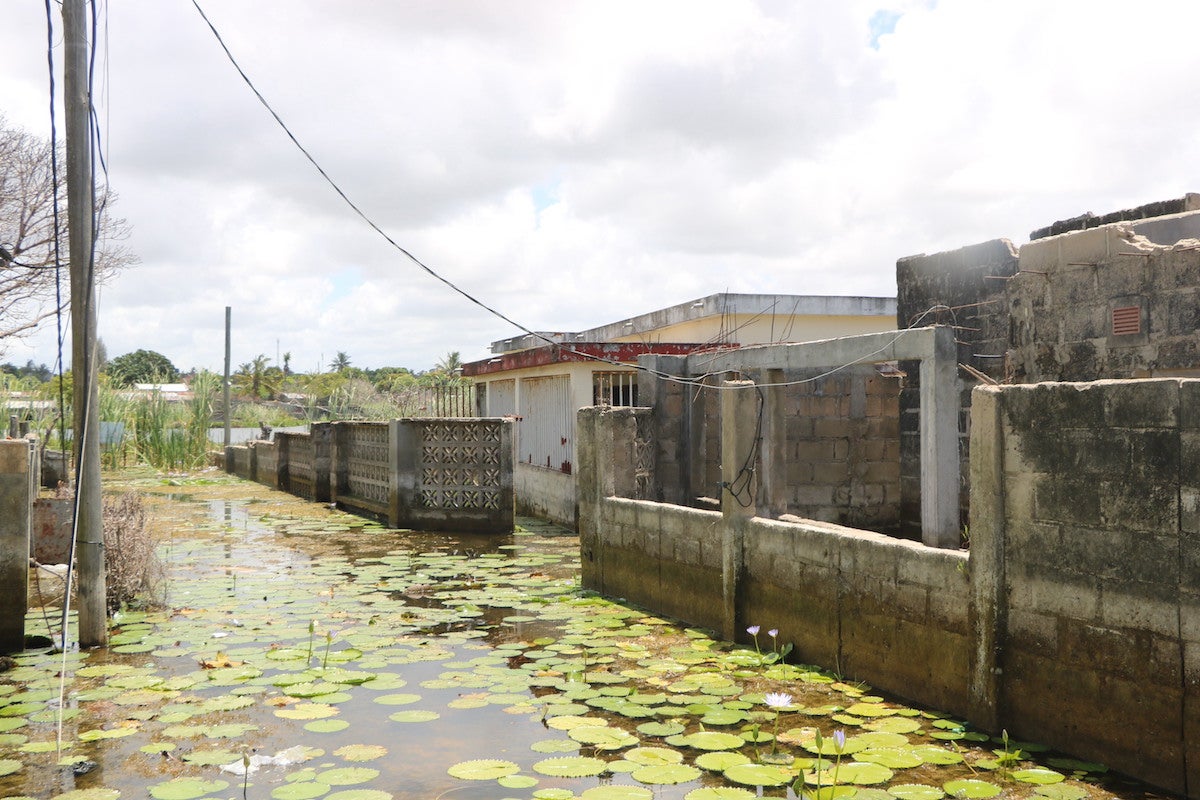
With a moderate to high risk of flooding foreseen for the current rainy season, UN Women equipped eleven local disaster risk management committees with preparedness kits in the municipal districts of KaMavota and KaMubukwana in Maputo. The intervention also covered the provision of 1,000 agricultural recovery kits (including high-yield seeds, tools, and organic fertilizers) to women smallholder farmers, and a supplementary 3,000 dignity kits for women and adolescent girls from the still-active accommodation centers in the periphery of Maputo City. These districts are the most affected by recurrent flooding and those with limited recovery services.
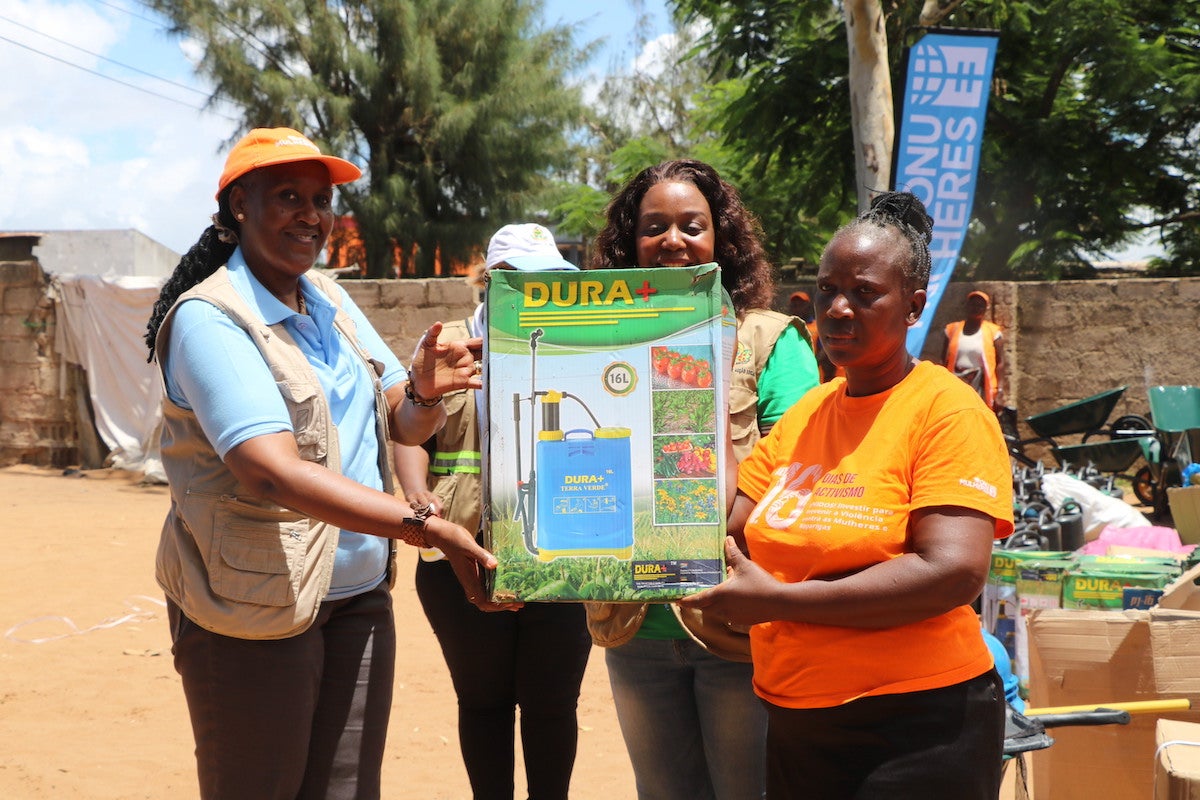
Mrs. Conceição Francisco, 55 years old, mother of 6 children, is among the women who are sheltered at the Capelinha accommodation center in KaMavota. Conceicao is on the waiting list for resettlement in safe areas and hopes to full recovery her livelihoods.
With the severe rains and floods of February 2023, Mrs. Conceição home was flooded and she lost everything in it. With reduced resources being allocated to women heads of households, she denounces the challenges saying, "Life is difficult in the center and I depend on assistance from people and institutions who donate clothes, food and school supplies." She is grateful for the support provided, and now she has nothing left but to pass on a message of hope and faith to her children.
Capacity building provided to women cooperatives and grassroots associations sought to prevent gender-based violence and most importantly to facilitate the integration of gender equality and leadership of crisis-affected women in the coordination and implementation of responses and preparedness measures.
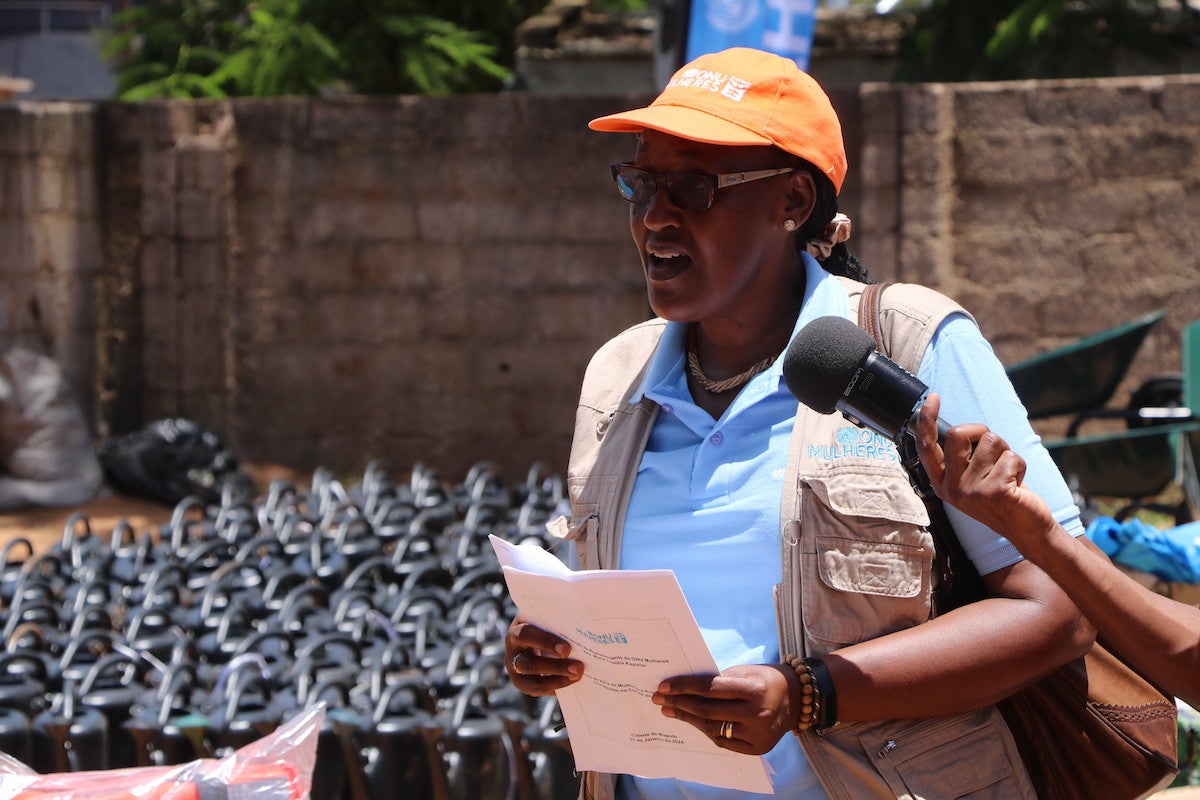
Addressing the participants during the handover ceremony, the UN Women country representative, Dr. Marie Laetitia Kayisire, emphasized that "Pre-existing gender-based discrimination and inequalities are exacerbated in crisis contexts, where women and girls face increased violence and exclusion. This in turn directly affects their ability to survive, receive vital assistance and recover from the shocks of the crisis".
As the Municipal Council and partners put in place a multisectoral durable solution, the support from UN Women will include procurement of an industrial water pump for the fast drainage of excess water in case of future urban floods. Such rapid life-saving interventions are aimed at minimizing the loss of lives in highly vulnerable neighborhoods.
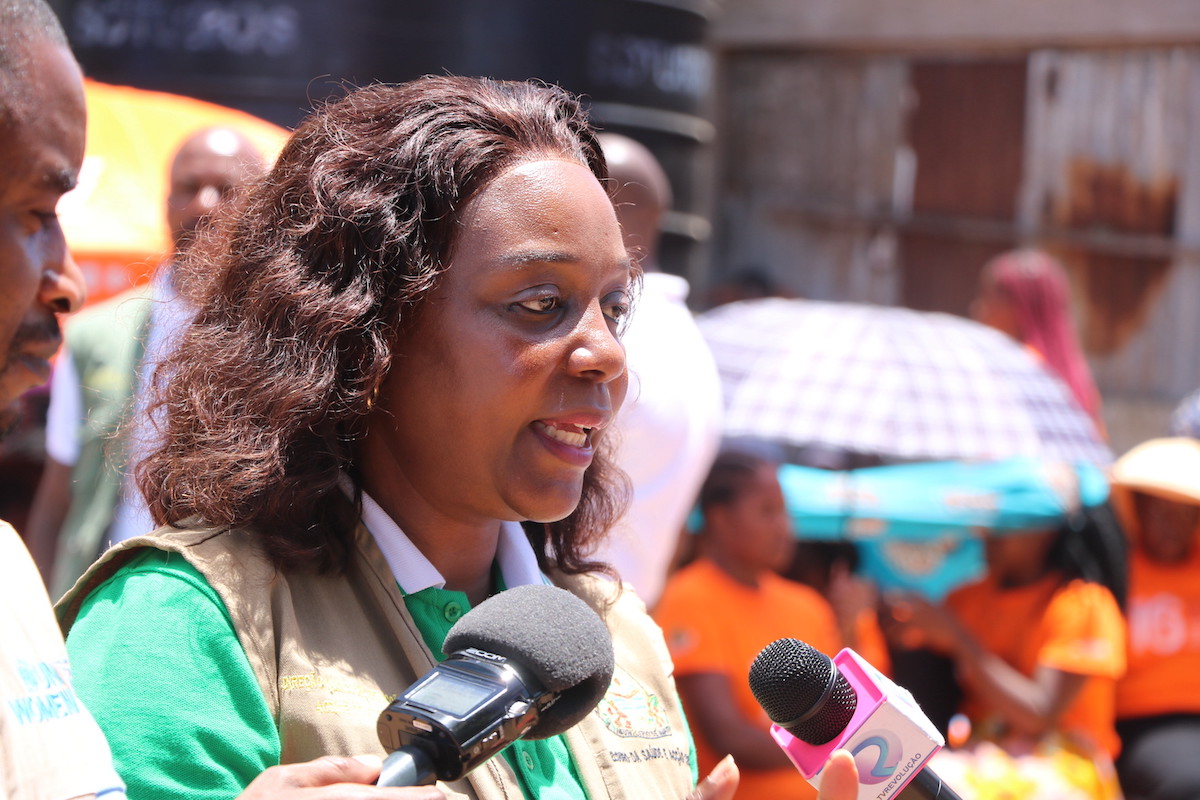
During the handover ceremony, Dr. Alice De Abreu, the Councilor for Health and Social Action of the Maputo City Council, confirmed that the floods are having a long-term impact in the lives of people. A year after the 2023 floods there are still 202 households in accommodation centers and relative’s houses, which corresponds to 1,030 people. “The kits will help to reduce the negative impact that the rains are having on families, as they will enable them to get back on their feet and create better conditions for themselves and their families”, added Alice De Abreu.
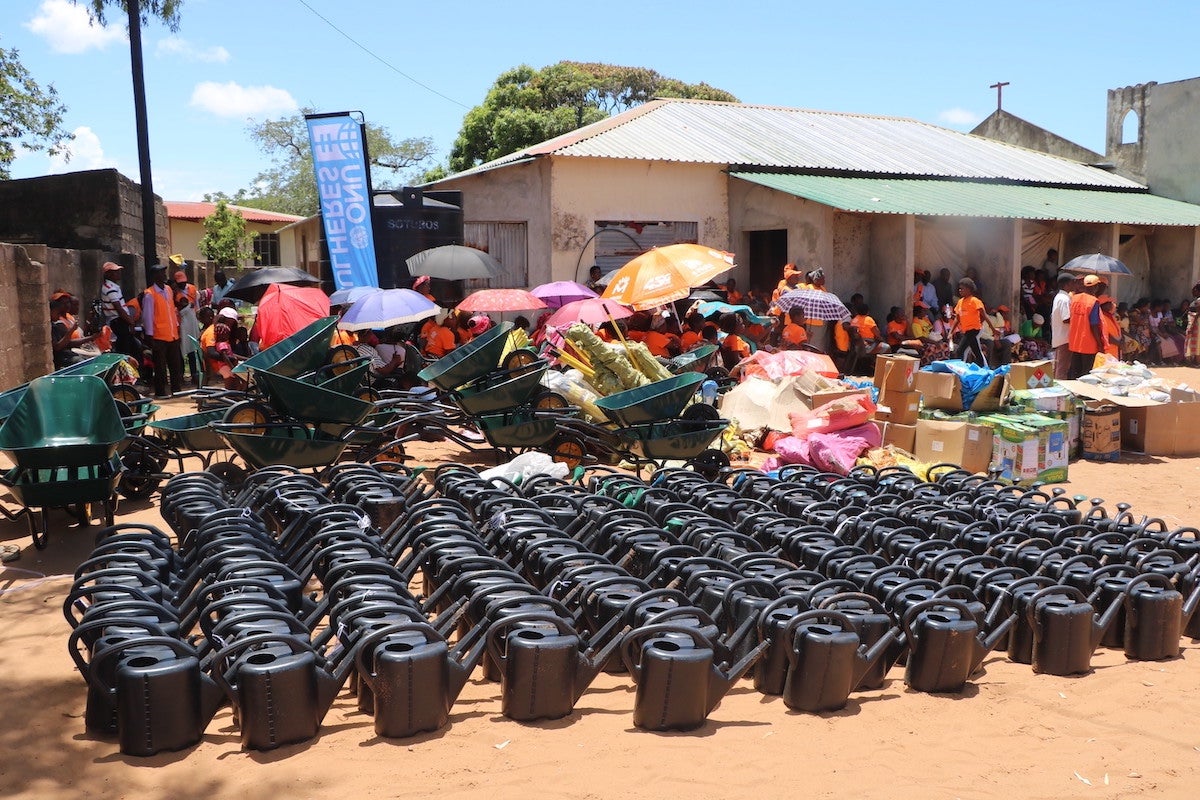
UN Women is catalyzing a planneprograms gender-responsive humanitarian action and women's resilience to disaster program. This intervention follows UN Women assistance with returnees’ kits to 1,000 women and girls in the district of Boane – another severely affected district. The donation of the kits was done hand in hand with awareness raising on the intersectionalities between gender and HIV.
Following its admission to IASC UN Women is increasing its capacities to respond to the disproportional impact of crisis-affected women in a country highly vulnerable to climate change. Recent and ongoing interventions cover responding to the IDP crisis in Cabo Delgado, Maputo Flooding, and recovery from cyclone Idai in central Mozambique.
